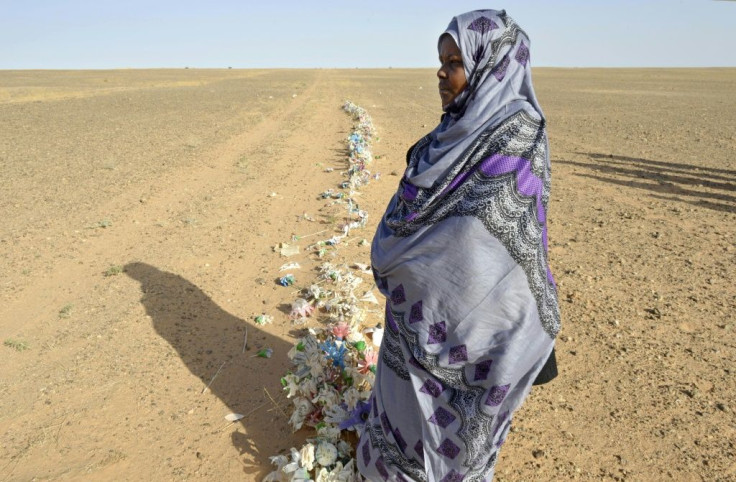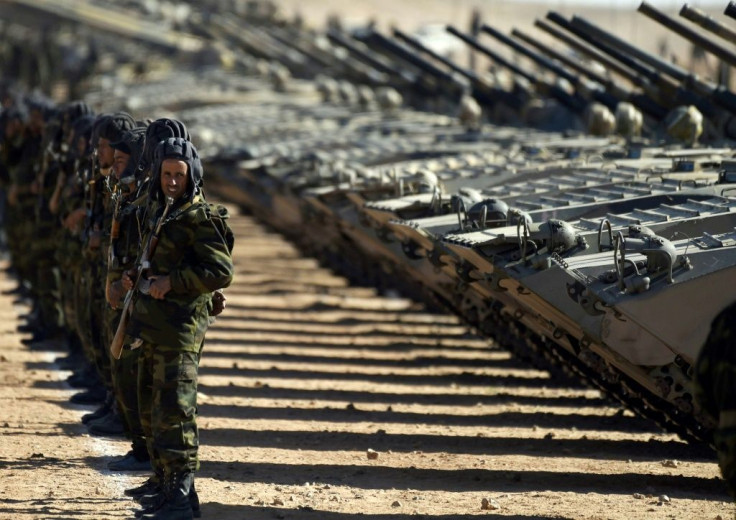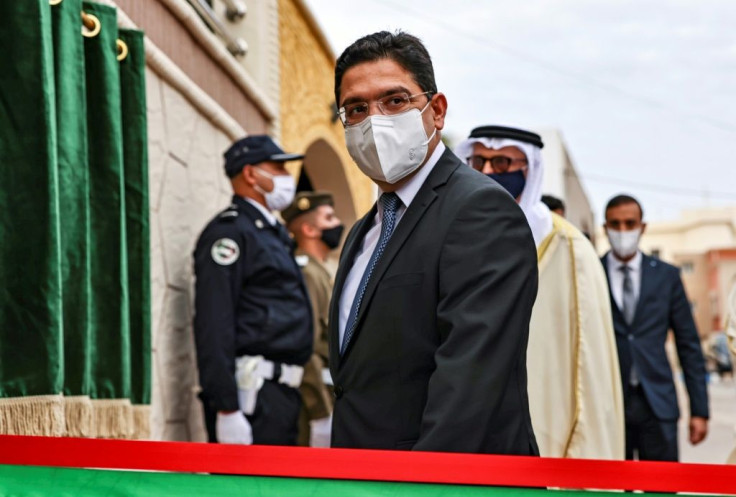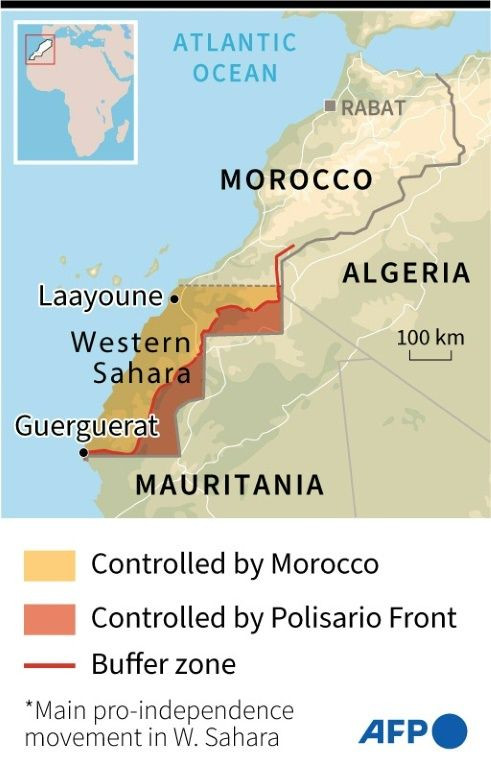Polisario Says W.Sahara Ceasefire Over As Rabat Launches Operation
The pro-independence Polisario Front declared a three-decade-old ceasefire in disputed Western Sahara was over on Friday after Morocco launched an operation to reopen the road to neighbouring Mauritania.
The move has sparked alarm, with UN chief Antonio Guterres expressing "grave concerns", while Algeria, Mauritania and France urged restraint.
Before dawn, Moroccan troops launched an operation in Guergerat, in the far south of the Western Sahara, "to set up a security cordon in order to secure the flow of goods and people", Morocco's military said in a statement.
Later there was an exchange of fire which did not cause any casualties, it added.

Rabat said its troops wanted to "put a stop to the blockade" of trucks travelling between Moroccan-controlled areas of the Western Sahara and Mauritania, and restore movement.
The Polisario, which warned on Monday that the 1991 ceasefire was hanging by a thread, said the move by the Moroccan military had brought it to an end.
"War has started, the Moroccan side has liquidated the ceasefire," senior Polisario official Mohamed Salem Ould Salek told AFP, describing the action by Rabat as an "aggression".
"Sahrawi troops are engaged in legitimate self-defence and are responding to the Moroccan troops," said Ould Salek, who serves as foreign minister of the Polisario-declared Sahrawi Arab Democratic Republic.

The United Nations has for days been trying to avoid an escalation in the Western Sahara, and Guterres "expresses grave concern regarding the possible consequences of the latest developments," a spokesman for the secretary-general said.
Algeria called on both sides "to show a sense of responsibility and restraint".
The appeal was echoed by Mauritania, which urged "all protagonists to work towards the preservation of the ceasefire".
And France late Friday called on participants to "do everything to avoid an escalation", the foreign ministry told AFP.

Polisario Secretary-General Brahim Ghali has written to Guterres calling for the Security Council to intervene, Ould Salek said.
The Moroccan foreign ministry said it was "firmly committed to the ceasefire" but had been forced to act by the actions of Polisario fighters in no-man's land on the Mauritanian border.

Foreign Minister Nasser Bourita insisted the action was a measured response, and had not affected any civilians.
"This is not an offensive action, it is a firm action compared to the action (by the other side) which is unacceptable," Bourita told AFP.
Western Sahara, a vast swathe of desert on Africa's Atlantic coast, is a disputed former Spanish colony. Rabat controls 80 percent of the territory, including its phosphate deposits and its lucrative ocean fisheries.
The Polisario's forces are largely confined to the sparsely populated desert interior and refugee camps in neighbouring Algeria, the independence group's main foreign backer.
The village of Guergerat is the last village in Western Sahara under Moroccan control.
Beyond it is a strip of desert where Polisario fighters have maintained a periodic presence in recent years.
An informal trade has grown in exporting Moroccan fresh produce to the Mauritanian coastal city of Nouadhibou, but to the growing anger of Rabat it has periodically fallen foul of the Polisario.
The group, which has campaigned for independence since the last days of Spanish rule in the 1970s, warned it would "respond vigorously in self-defence and to defend its national sovereignty" in the event of any Moroccan incursion.
Morocco, which maintains that Western Sahara is an integral part of the kingdom, has offered autonomy for the territory but insists it will retain sovereignty.
The Polisario demands a referendum on self-determination as set out in the 1991 ceasefire.
The vote has been repeatedly postponed due to disputes between Rabat and the Polisario over voter rolls and the question to be asked.
A UN peacekeeping force, MINURSO, has patrolled a buffer zone between the two sides since a UN-brokered ceasefire took effect in 1991.
"The Polisario and its militias, who have infiltrated the zone since October 21, have been carrying out acts of banditry, blocking traffic and continually harassing MINURSO military observers," Morocco's foreign ministry said.
A senior ministry official told AFP that around 70 armed men have been "attacking truck drivers, blocking their passage and engaging in extortion".
Nearly 200 truck drivers are stranded on either side of the Mauritanian border, the official said, after Polisario fighters blocked their passage.
© Copyright AFP {{Year}}. All rights reserved.





















